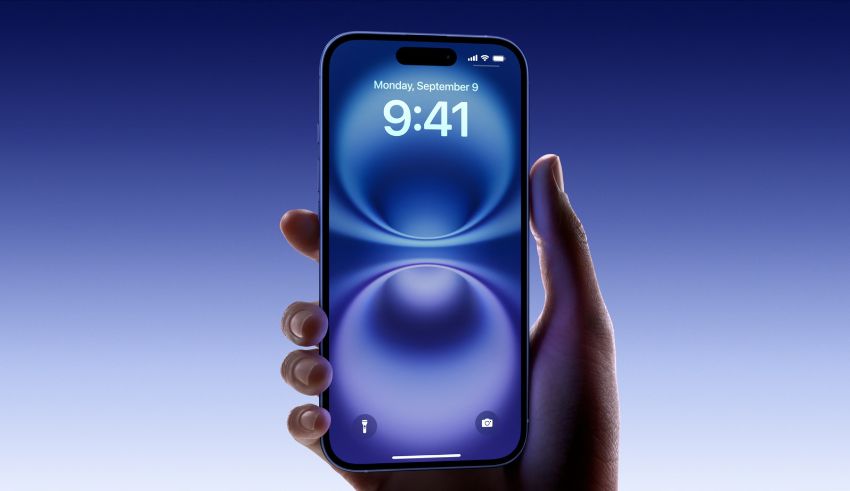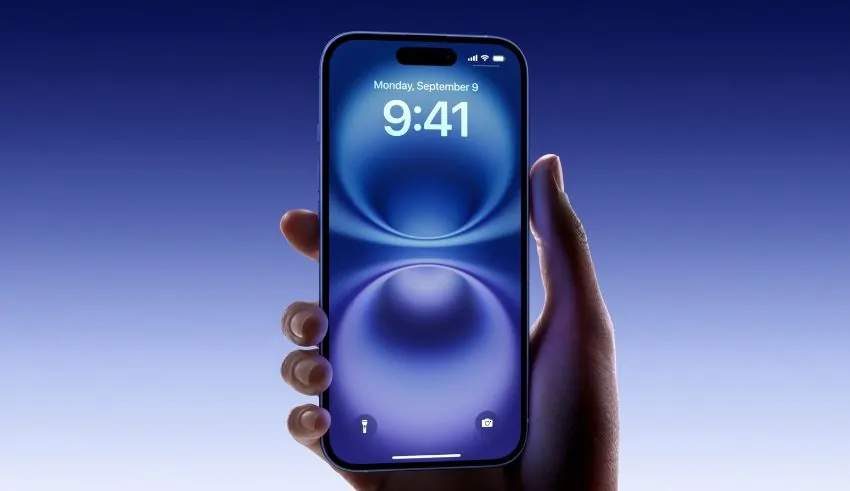

(C) Apple Hub/X
In a historic event on Monday, Apple revealed its much awaited iPhone 16, the first in its series exclusively meant for generative artificial intelligence. Under the guidance of Apple CEO Tim Cook, who stressed the changing power of artificial intelligence for everyday consumers, the “It’s Glowtime” event was staged at Apple’s Cupertino, California headquarters.
For Apple, this launch marks a turning point since it seeks to establish leadership in the growing artificial intelligence landscape and increase iPhone sales. While rivals like Google and Samsung advance artificial intelligence, Apple wants to distinguish out with a device redefining user interaction, customizing, and usefulness.
Tim Cook debuted “Apple Intelligence,” a brand-new suite of AI-powered software tools ready to revolutionize not just the iPhone 16 but the Apple ecosystem as whole. “We are happy to present the first ground-up iPhones created for Apple Intelligence and their revolutionary features,” Cook said.
For Apple, he highlighted, this technology represents a significant turning point since it seeks to fully exploit artificial intelligence to offer its customers more personalized, user-friendly interactions. Cook stressed that with the iPhone 16 Apple Intelligence takes front stage even if it builds on years of AI and machine learning integration.
From picture processing and communication to tighter relationship with Apple’s digital assistant, Siri, the system promises to enhance many aspects of regular smartphone use. Signing the beginning of what Cook described as a “consumer AI revolution,” the launch gets Apple ready to spread its AI ambition across its product range.
iPhone 16: A Crucial Launch for Apple’s Financial Future
Still the main product from Apple, the iPhone accounts for 60% of the $39 billion in sales in the most recent quarter alone. Given such a strong dependence on iPhone revenue, the success of the iPhone 16 is absolutely crucial. Apple’s sales have slowed down over the past few years, partly due to purchasers clinging to older models for longer lengths of time.
Apple is keen to reverse the sales slide this inclination has caused. With its enhanced artificial intelligence capabilities, the iPhone 16 aims to buck this trend by offering a smartphone experience unlike any other. This time, it’s about bringing artificial intelligence into daily tasks in ways meant to seem natural and vital, not merely about modest hardware and camera quality improvements. Apple expects this revamped user experience to motivate consumers to upgrade more frequently, therefore revitalizing its smartphone business.
Apple Intelligence: Future Generation of Smart Features
The basis of the iPhone 16 is Apple Intelligence, the strong artificial intelligence engine revealed earlier this year at Apple’s annual Worldwide Developers Conference. Cook characterizes Apple Intelligence as a “personal intelligence system,” designed to complement daily tasks and offer improved, more tailored capabilities.
For example, the artificial intelligence engine drives automatic language translation, powerful image editing tools, and contextual improvements in chat apps. Apple intelligence, however, transcends basic chores. Deep learning characteristics of the system allow it to change user interaction with their gadgets. By means of user preferences and behavior, it customizes the device’s operation to meet specific need.
Whether it comes to daily calendar management, app and media suggestions, or automatically low battery use according on usage patterns, Apple Intelligence is meant to simplify and improve the user experience.
Apple’s Strategic Alliance with OpenAI
Among the most significant developments at the conference was Apple’s growing cooperation with OpenAI, the company behind ChatGPT. Apple’s artificial intelligence strategy centers largely on this partnership since it enables the inclusion of advanced generative AI capabilities right into the iPhone 16. Using OpenAI’s state-of- the-art language models, Apple hopes to give more sophisticated natural language processing capacity so allowing people to communicate with their gadgets in more fluid and meaningful ways.
Working with OpenAI also allows app developers to create AI-enhanced goods that would completely benefit the new Apple Intelligence system. Apple expects these apps to stimulate fresh waves of innovation, so the iPhone 16 is not merely a smartphone but also a platform for AI-driven experiences that might totally transform entire industries.
Including artificial intelligence into Apple’s portfolio: Apple Watch and AirPods
Apart from the iPhone 16, Apple is putting artificial intelligence capacity into other flagship products. Also revealed during the event were updated Apple Watch and AirPods models, both enhanced with Apple Intelligence. Including artificial intelligence into these devices tends to give consumers a more perfect, connected experience.
For instance, the new AirPods incorporate artificial intelligence-driven sophisticated noise canceling powers powered by dynamic adjustment to meet different environments. The device will also employ artificial intelligence to improve voice recognition, therefore enabling more accurate and speedy Siri interactions. Similarly, the next Apple Watch models will use artificial intelligence to offer more precise sleep tracking, predictive health alarms, and exercise advice as well as more exact monitoring.
Tech Industry Analyzes: Apple Leading Front in Consumer AI Revolution
Industry observers see great excitement in Apple’s most recent product introduction. According to Wedbush analyst Dan Ives, who places Cupertino, Apple’s birthplace, as the “gatekeeper” of artificial intelligence for average customers, the iPhone 16 represents a major breakthrough in the consumer AI revolution. Ives believes that including Apple Intelligence would not only increase iPhone sales but also encourage a new generation of apps targeted on artificial intelligence capability.
Techsponential expert Avi Greengart has observed that the release of the iPhone 16 impacted popular expectations for Apple products. Past Apple releases were sometimes seen as offering just minimal hardware and software improvement. Apple is going to reinvent what customers want from its products with the AI-driven iPhone 16, though.
Greengart mentioned the idea of a “super-powered Siri” as a game-changer that may fundamentally increase the utility of the iPhone by adding artificial intelligence across all apps and capabilities.
Smartphone Market Competitiveness Driven by AI: Apple against Samsung and Google
Apple’s arrival into cellphones driven by artificial intelligence aligns with rivals’ Google and Samsung also want to carve out their niche in the growing AI market.
Stressing its own AI breakthroughs just weeks before the release of the iPhone 16, Google introduced its AI-infused Pixel 9 smartphone Though Google’s Pixel phones have less of a share of the global smartphone market than Apple and Samsung, the company is presenting its new range as a rival to the iPhone stressing the pragmatic applications of artificial intelligence in daily life.
From home appliances to smart TVs, Samsung has been aggressively implementing artificial intelligence into all of its product range while maintaining leading worldwide smartphone sales. The competition among these digital giants is increasingly fierce as each one of them aims to dominate in artificial intelligence innovation—not only in the sphere of cellphones but also in the more general consumer electronics.
Forward: The AI Revolution and Future of the iPhone
The release of the iPhone 16 represents simply the beginning of a more ambitious strategy Apple has in mind to incorporate artificial intelligence into all aspect of its product line. While Apple Intelligence will immediately affect practical features like better image editing and language translating, many believe the long-term objective is much more idealistic.
Developing a “super-powered Siri,” which could serve as a personal assistant across all apps, offers contextually aware recommendations, handles challenging tasks, and even more deftly controls smart home appliances. As artificial intelligence advances Apple has the chance to create a very integrated, sophisticated ecosystem.
Conclusion: Vision of Apple Driven by Artificial Intelligence
Apple has made it rather clear with the release of the iPhone 16 that artificial intelligence will become the core of its upcoming strategy. The integration of Apple Intelligence across the products of the company symbolizes a new era of smarter, more tailored technology ready to immediately satisfy customer needs.
Apple is spearheading this transformative movement as the AI revolution grows, therefore impacting not just smartphones but the entire tech industry and deciding their future. The iPhone 16 marks a major swing toward that future in which technology enters daily life with ever-increasing simplicity, responsiveness, and necessity driven by its AI-driven traits.
Apple’s focus on delivering perfect, intelligent experiences will most likely define the next generation of consumer gadgets as rivalry in the AI industry gets more fierce defines gets more intense.
The fifth prisoner exchange took place on 6 May 2025 between Russia and Ukraine involving 205 prisoners and it is…
Established in the year 1921 and it still continues to showcase the legacy of this game through generations. This ‘Emperor’s…
The NBA Playoffs of 2025 would have much perdition during the matches of the second round. In the East, the…
Jimmy O.Yang, the Asian standup comedian established his name in the international stage and he is more popular among the…
Bill Gates of the Bill & Melinda Gates Foundation declared during the Philanthropy Asia Summit on May 5, 2025 that…
The game changer of the Netflix streaming is the South Korean nail biting survival thriller web series “Squid Game” and…
This website uses cookies.
Read More